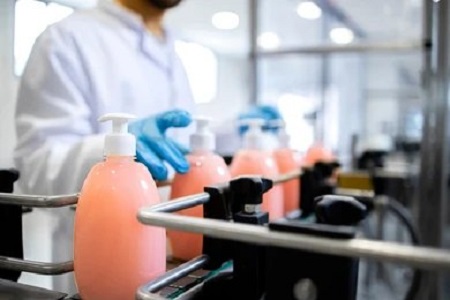In the growing beauty and personal care industry, obtaining a cosmetic license registration is a crucial step for businesses and individuals looking to manufacture, distribute, or sell cosmetic products. This registration ensures compliance with legal requirements, safety standards, and quality regulations, protecting both businesses and consumers.
A cosmetic license registration is a mandatory process that certifies the safety, quality, and authenticity of cosmetic products before they enter the market. Regulatory authorities enforce these guidelines to safeguard public health, ensuring that all cosmetics meet specific standards for ingredients, labeling, and manufacturing practices.
Why Is Cosmetic License Registration Important?
The cosmetic industry is highly regulated to prevent the sale of harmful or substandard products. Without proper registration, businesses risk legal penalties, recalls, and damage to their reputation. The cosmetic license registration process assures consumers that products are safe for use and comply with national and international standards.
Additionally, having a cosmetic license builds trust with customers and retailers. It demonstrates a commitment to quality and safety, providing businesses with a competitive edge in the market. For startups and established brands alike, proper licensing can be the foundation for long-term success.
Key Steps in Cosmetic License Registration
- Understanding Regulatory Requirements: Before initiating the process, it is essential to familiarize yourself with the guidelines set by regulatory bodies. These include product definitions, permissible ingredients, and labeling requirements.
- Documentation and Application Submission: Businesses must gather the necessary documents, such as product details, ingredient lists, manufacturing processes, and safety data. Applications must be submitted to the relevant authority along with the prescribed fees.
- Product Testing and Compliance: Products may need to undergo testing to ensure they meet safety and quality standards. Compliance with Good Manufacturing Practices (GMP) is often required to maintain product consistency and safety.
- Approval and Issuance of License: Once the application is reviewed and approved, the cosmetic license registration is issued, allowing businesses to manufacture and market their products legally.
Who Needs Cosmetic License Registration?
Cosmetic license registration is mandatory for manufacturers, importers, and distributors of cosmetic products. Whether it’s skincare, hair care, makeup, or fragrances, any product that falls under the definition of cosmetics requires proper registration before it reaches consumers.
Importers who bring cosmetic products into the country must also adhere to the registration process, ensuring that international products comply with local regulations. This step is essential to maintain consumer safety and product quality.
Benefits of Cosmetic License Registration
- Ensures Product Safety: Proper registration verifies that products are safe, non-toxic, and free from harmful ingredients.
- Builds Consumer Trust: Licensed products instill confidence in consumers, encouraging brand loyalty.
- Legal Compliance: Registration protects businesses from penalties, fines, and product recalls.
- Market Expansion: Licensed products can be distributed nationally and internationally, opening new growth opportunities.
Conclusion
Obtaining a cosmetic license registration is an essential requirement for businesses in the cosmetic industry. It not only ensures compliance with safety and quality standards but also fosters trust and credibility among consumers. By following the registration process diligently, businesses can bring high-quality products to market, contribute to consumer safety, and position themselves for growth in the competitive beauty industry.
In an industry driven by quality and trust, cosmetic license registration stands as a cornerstone for businesses aiming to thrive and deliver safe, effective, and reliable cosmetic products.





Comments